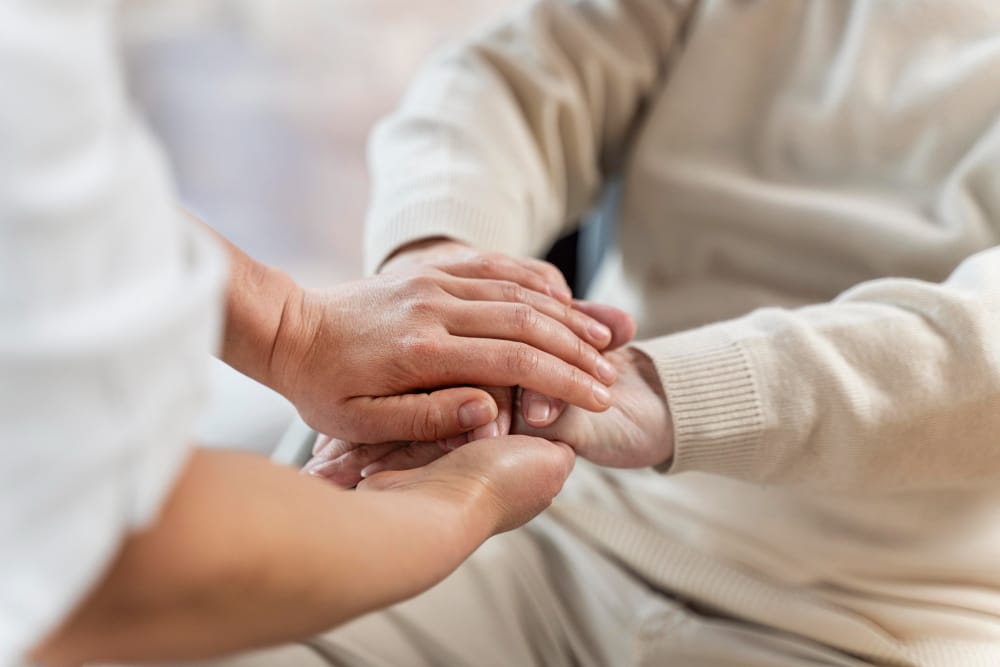The job of a caregiver for the elderly is not only a huge physical challenge, but also emotional. Everyday care for seniors, especially those with serious medical conditions, can be exhausting. In this role, it is extremely important to maintain a balance between work and rest, to avoid burnout and take care of your own mental health. Breaks and recovery are not a luxury, but a necessity for caregivers, who want to effectively support their clients and at the same time maintain their own good condition.
1. Career burnout - what is it and why is it dangerous??
Burnout is a physical condition, emotional and mental exhaustion caused by long-term stress. Babysitters, who do not care about regular rest, are particularly vulnerable to this phenomenon. Symptoms of burnout include feelings of helplessness, lack of motivation to work, chronic fatigue, as well as physical symptoms, such as headaches or problems with concentration. Working with older people, which often require intensive attention and care, you can easily forget about your own needs, which leads to a deterioration in the quality of life of both the caregiver, as well as the ward.
That's why it's crucial, so that every caregiver is aware of the symptoms of burnout and takes care to introduce habits, that will help you avoid it.
2. The importance of regular breaks at work
Work as a babysitter requires full commitment, however, we cannot forget, that the human body needs rest, to function properly. Regular breaks are an essential part of your daily routine, even if the responsibilities seem endless. Every caregiver should plan breaks for short rest - it can be 15 minutes to drink coffee, going out for fresh air or just a few moments of silence.
It is important to, to disconnect emotionally from work during this time. Even a short break to take deep breaths or stretching can help reset your mind and reduce stress levels. Regular breaks help caregivers maintain energy for the rest of the day and better cope with difficult moments.
3. Work-life balance
The work of a caregiver often involves long hours and intense involvement in the life of the person under care, what makes, that the line between professional and private life may become blurred. That's why it's important, to clearly separate work time from recovery time. Caregivers should take care of this, to find a moment to relax after the end of the working day, meetings with loved ones, hobbies or other activities, that bring joy.
Taking care of yourself outside of work hours helps you reset your mind and recharge your batteries. Babysitters, who don't care about their private life, they run the risk of becoming emotionally exhausted more quickly.
4. The importance of emotional support
Working with older people can be emotionally exhausting, especially if we are caring for people with dementia, Alzheimer's disease or other chronic diseases. Emotional support, both from relatives, as well as other caregivers, is extremely important. Conversations with people, who understand the difficulties of this profession, can help caregivers cope with emotions, that accompany everyday work.
It is also worth considering participating in support groups for caregivers, that offer the opportunity to exchange experiences and advice. Such groups not only provide practical tips, but they also give you a feeling, that you are not alone in this challenge.
5. How to introduce mental health habits
Taking care of your mental health doesn't require much change, but introducing simple habits into everyday life. Here are some practical tips:
- Meditation and relaxation techniques: Short sessions of meditation or breathing exercises can help reduce stress and improve concentration. Even 10 minutes a day devoted to meditation can have a significant impact on your well-being.
- Physical activity: Regular exercise, such as walking, yoga or swimming, they help not only in maintaining good physical condition, but also reduce stress and improve mood. Even a walk of a dozen or so minutes after work can help you "clear your head" and regenerate after a hard day.
- Healthy diet: Well-being starts with a healthy body. When working as a caregiver, it's easy to neglect regular meals, but a balanced diet provides the necessary energy and improves the functioning of the body. It is important to, to find time to eat healthy, that will provide energy for the whole day.
Summary
The job of a caregiver for the elderly is one of the most responsible tasks, requiring both physical strength, as well as emotional. To perform your duties effectively and at the same time take care of your mental health, it is crucial to introduce breaks, regular rest and relaxation techniques. Maintaining a balance between work and private life, Providing emotional support and introducing simple health habits allows you to avoid burnout and ensures better quality of care for those under your care. After all, a healthy caregiver is an effective caregiver – and taking care of yourself is the first step to better care for others.


Recent Comments